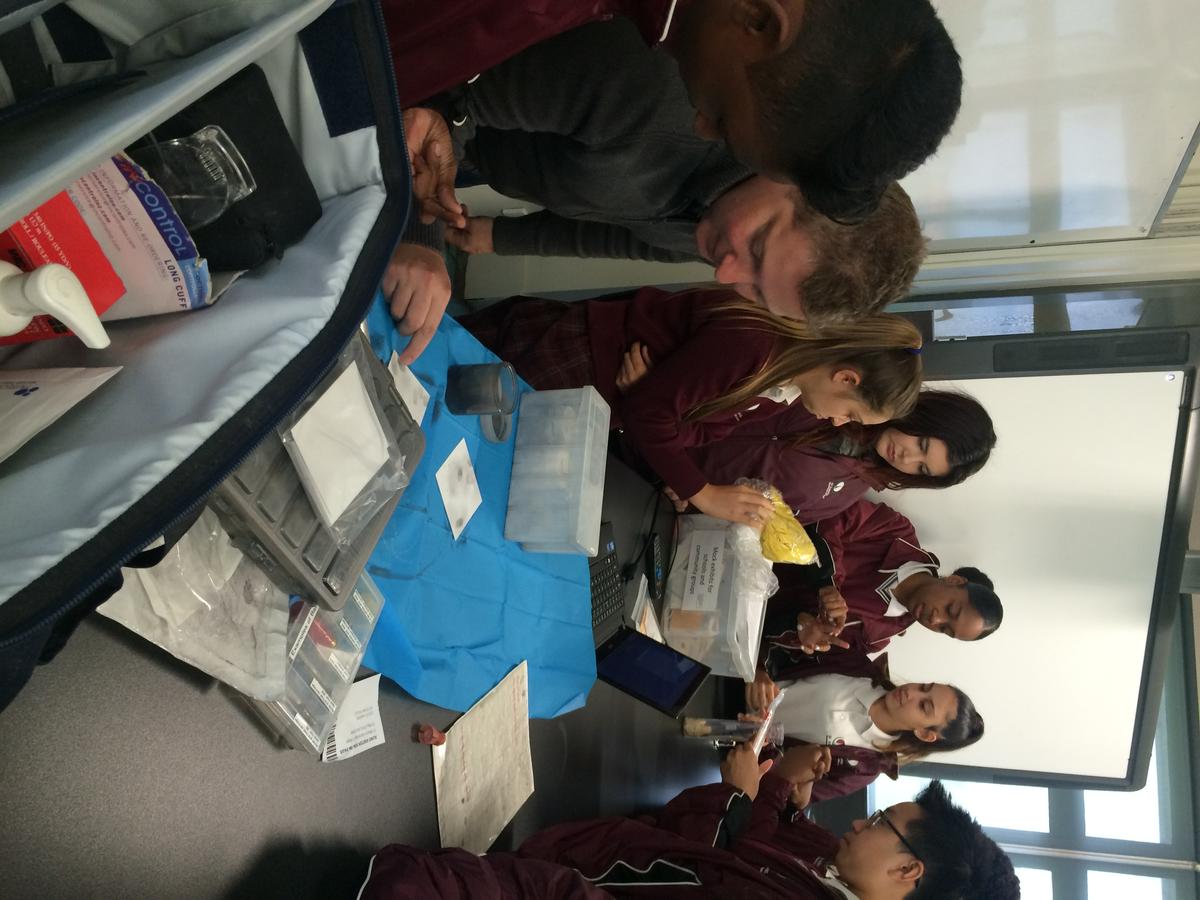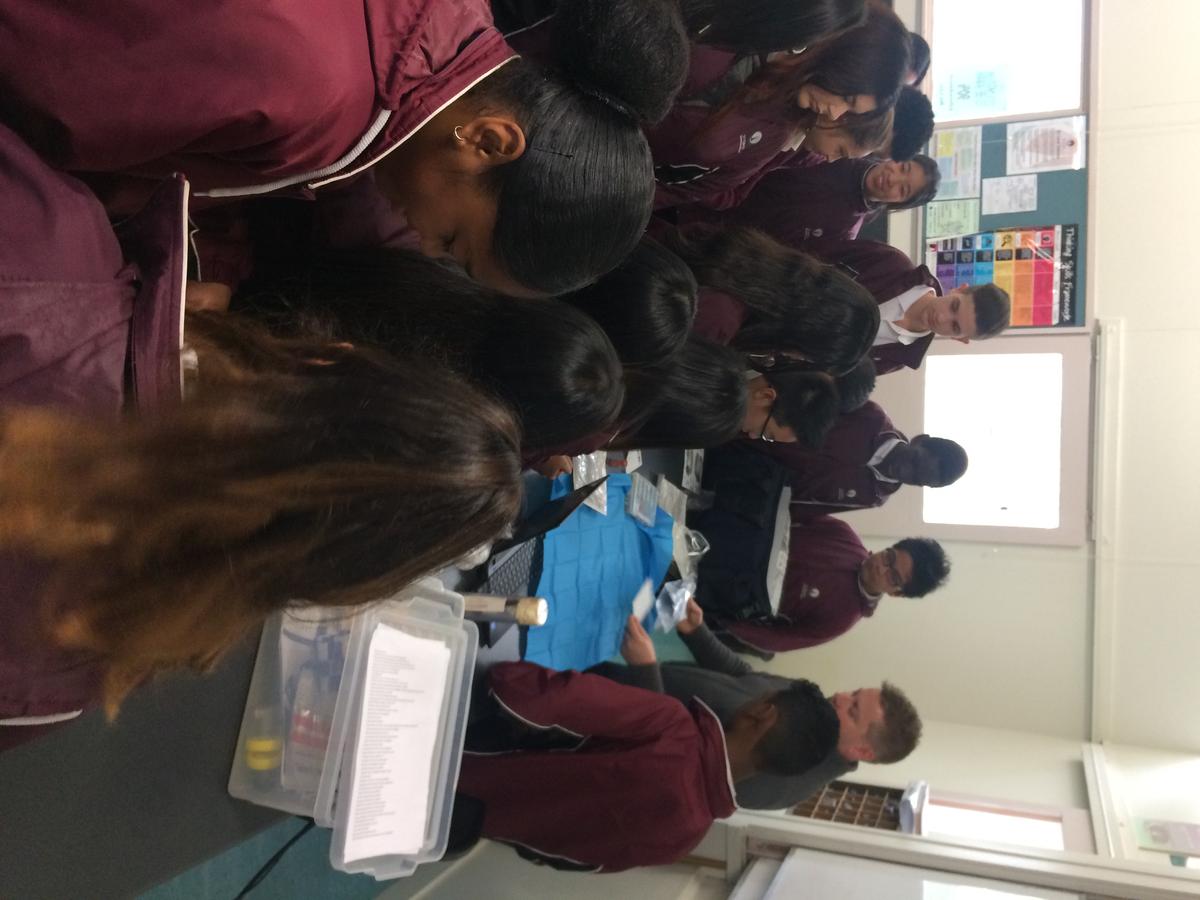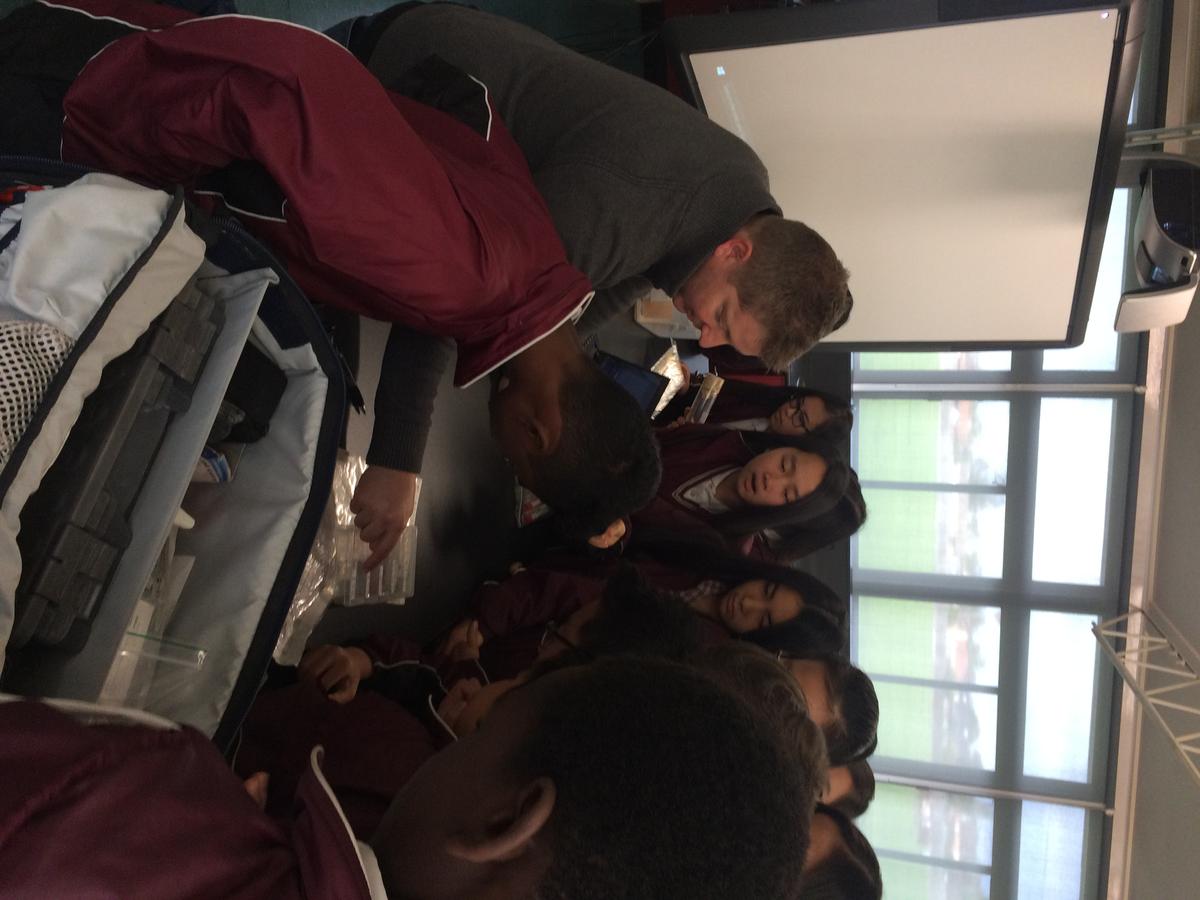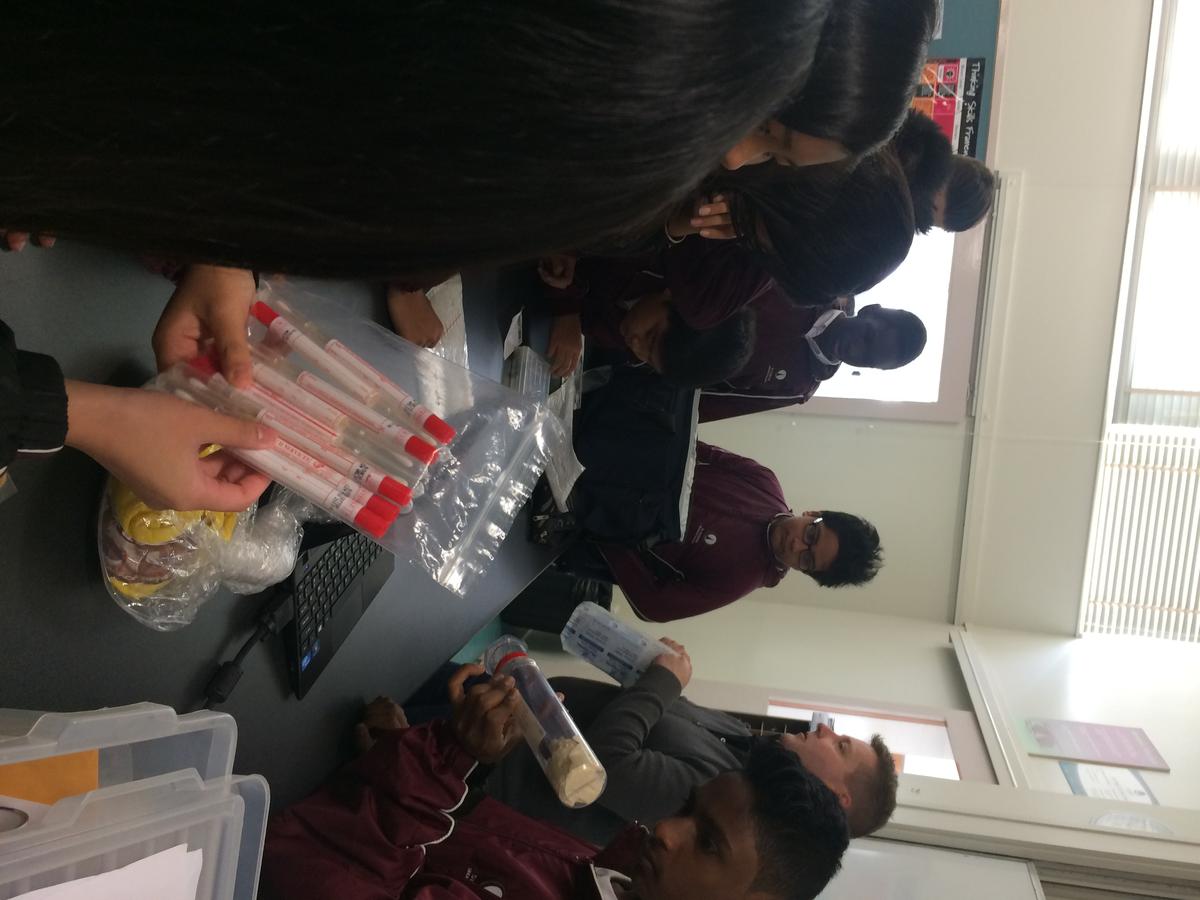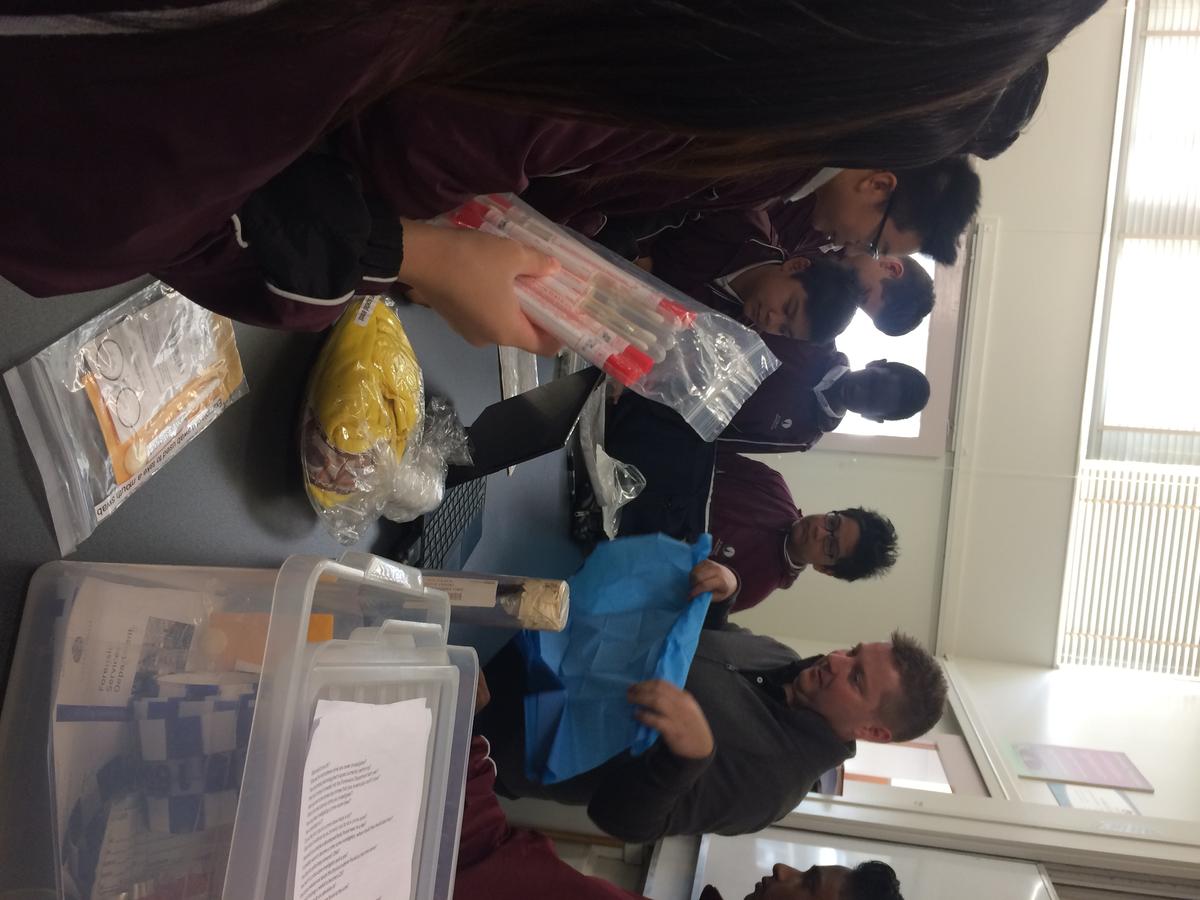Victoria Police Sergeant visits Year 9 Forensic Science class

Victoria Police Sergeant visits Year 9 Forensic Science class
On Wednesday the 25th May, Sergeant Scott Harris, from the Victoria Police Forensic Services Department came to visit the year 9 Forensic Science class. He explained what his job as a Major Crime Scene Investigator involves and was happy to answer our many questions. We were all interested to meet a ‘real CSI’ and find out first hand – is it really like what we see on TV?
Some of the things we learned were:
“You have to basically study for six or more years to be qualified as a forensic expert.”
“Guns also have their own ‘fingerprint’.”
“Fingerprints can be found using a fluorescent substance on solid surfaces.”
“What I learned is that evidence is never totally destroyed, there is always something left behind for them to get clues.”
“Fingerprints are usually traced to its owner, which technically means that unsolved cases involving fingerprints are non-existent.”
He explained that although there are many similarities, some aspects of shows like CSI are inaccurate.
“Some of the techniques used on TV are not possible in real life.”
“The amount of effort and care put in is so much more serious in real life than on TV.”
“When there’s a dead body found on the spot of crime TV shows, CSI’s go jumping in and start to move the body around to look for any injuries but the real CSI’s use their processes and procedures.”
“Real life crime scene investigation can sometimes be a long and boring process.”
“On CSI, you will see the investigators examining the crime scene in their normal clothes. In real life, because clothing can contaminate the crime scene, the investigators always wear protective suits.”
“TV shows make forensic scientists to be simple and exciting but really it’s draining and extensive, you also don’t really have a social life.”
“On TV there is always one or two people who are responsible for the whole investigation but in real life there are many different departments that many people specialise in.”
We were impressed by his hard work, knowledge and expertise.
“Whether or not his job is like on TV, his job certainly seems interesting.”
“When he shared his own personal experience with us, I also wanted to have a job in the forensics department in the future but I can’t deal with dead bodies and blood, so that’s something I have to work on.”
“It is a much harder job than we think.”
“He told us about being a forensic scientist and some things that he didn’t like, such as having to wake up at 3am to investigate and sometimes only getting a few hours’ sleep.”
“He was very well prepared with his PowerPoint slides full of information.”
“In my opinion, I think that it was very fun to have a real person who works at the Forensics Services Department to come in to talk to everyone.”
Overall, it was a great experience and we all learned a lot. We also had fun checking out the equipment he brought along to show us. Thanks for visiting Scott!
Ms Clara Singh and the Year 9 Forensics Science class
